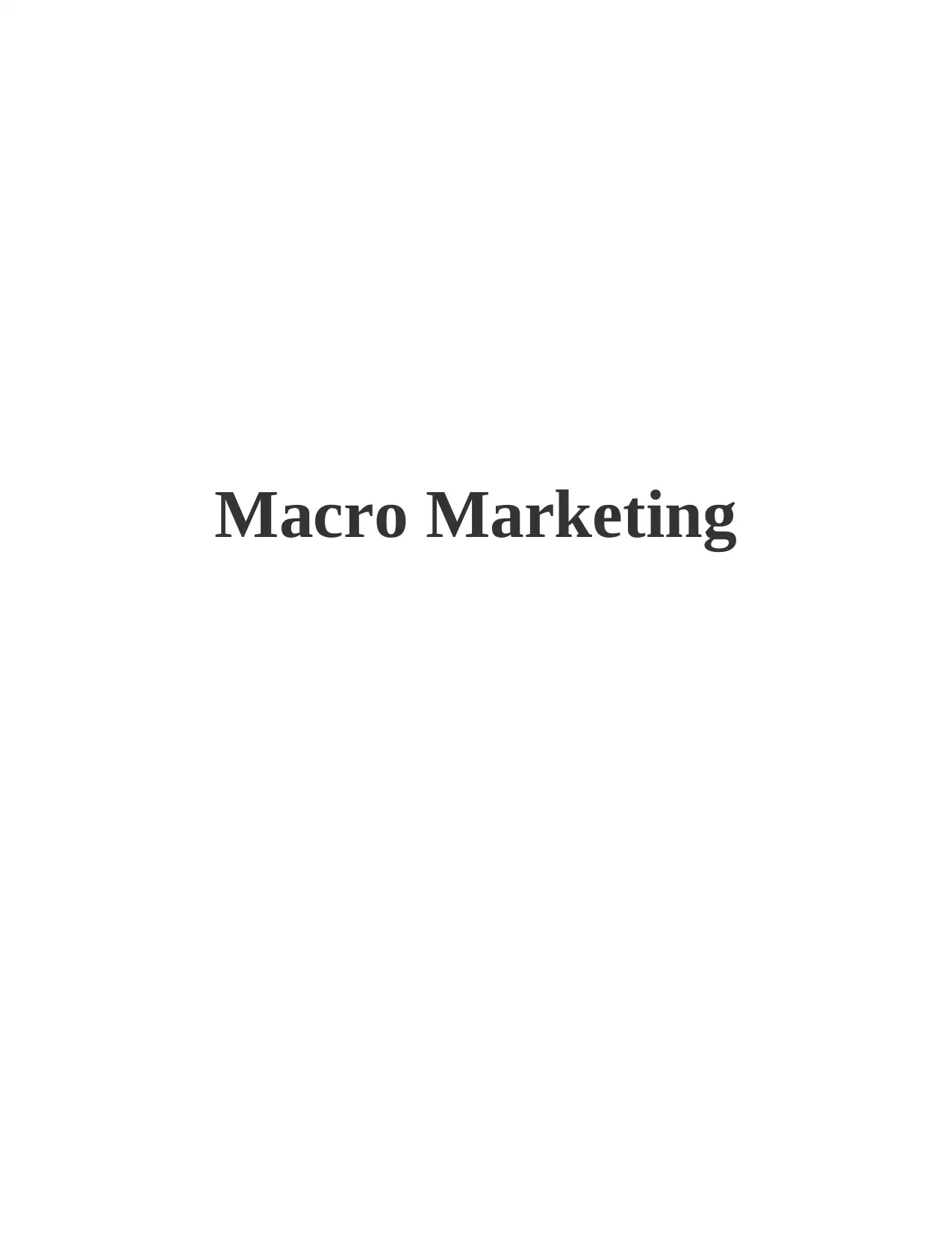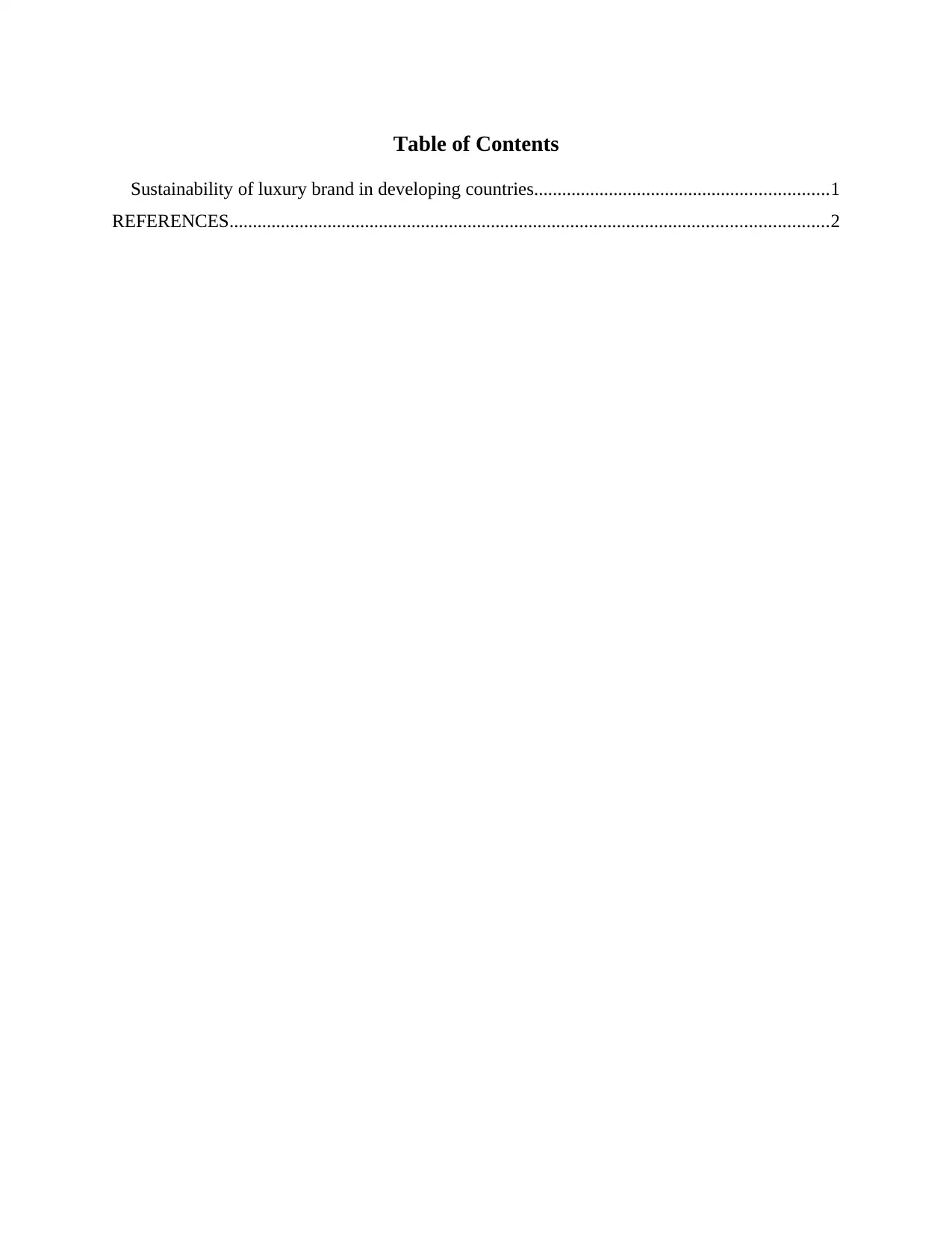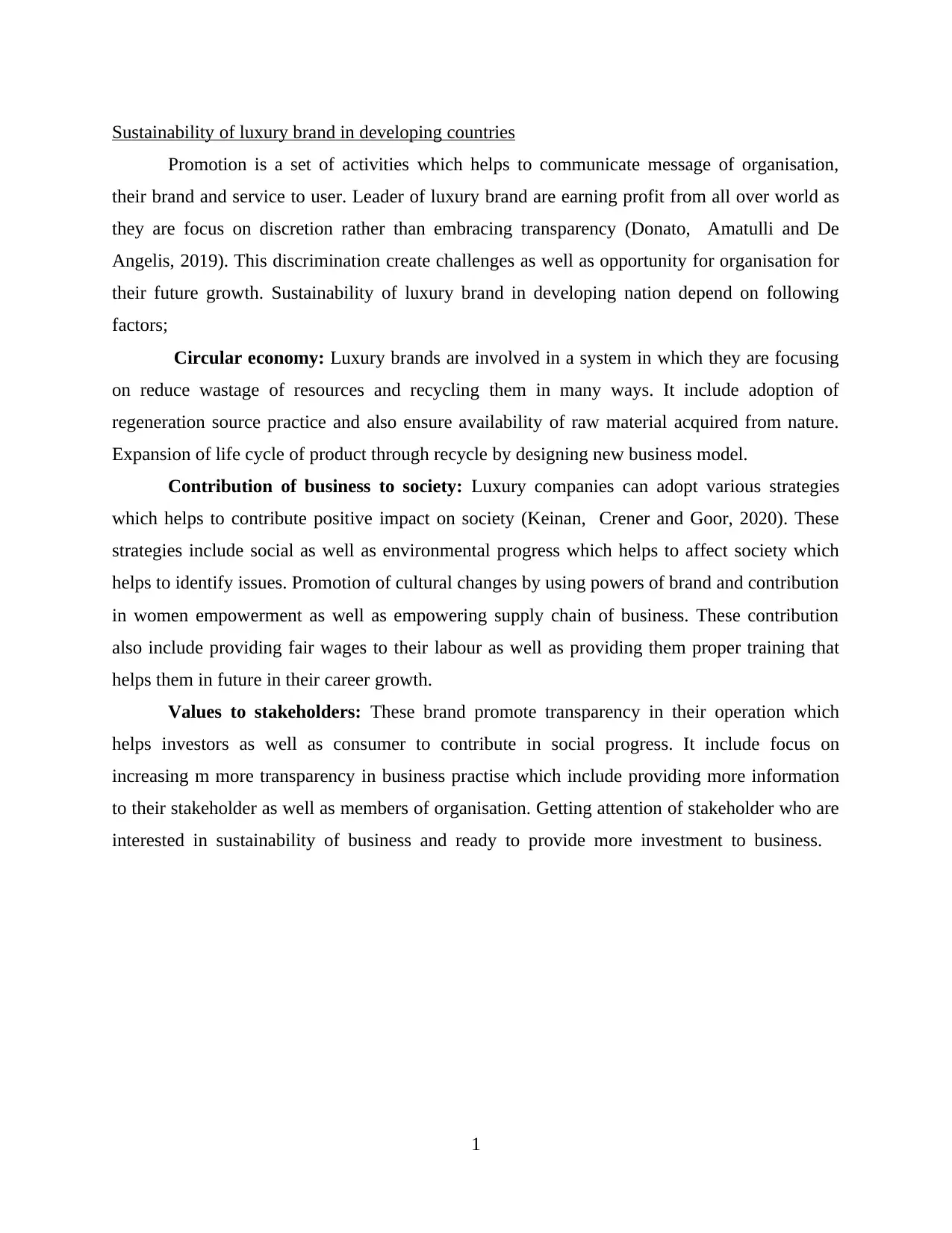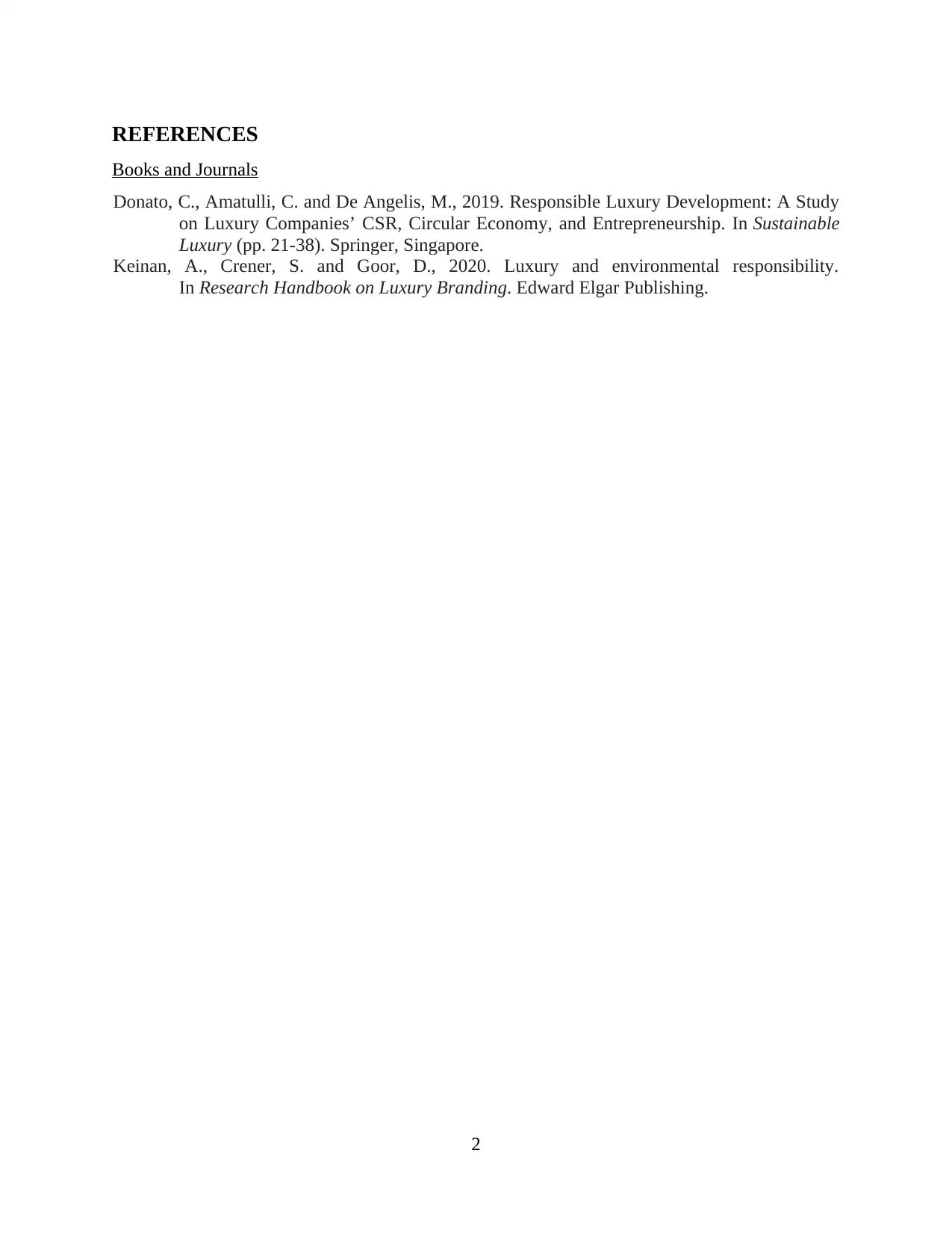Luxury Brand Sustainability and Developing Nations: A Report
VerifiedAdded on 2022/12/19
|4
|415
|42
Report
AI Summary
This report examines the sustainability of luxury brands in developing nations, addressing how these brands navigate challenges related to wealth disparity and consumer perception. It explores the implementation of circular economy models, focusing on waste reduction, resource regeneration, and product lifecycle extension. The report also highlights the importance of corporate social responsibility (CSR) in these contexts, including strategies to positively impact society through initiatives like empowering women and supporting fair labor practices. Furthermore, it emphasizes the significance of transparency in business operations to build trust with stakeholders and attract investment, ultimately contributing to the brands' long-term sustainability and positive societal impacts in developing nations. This analysis is based on the provided references and explores the interplay of these factors to achieve sustainable business models.
1 out of 4











![[object Object]](/_next/static/media/star-bottom.7253800d.svg)